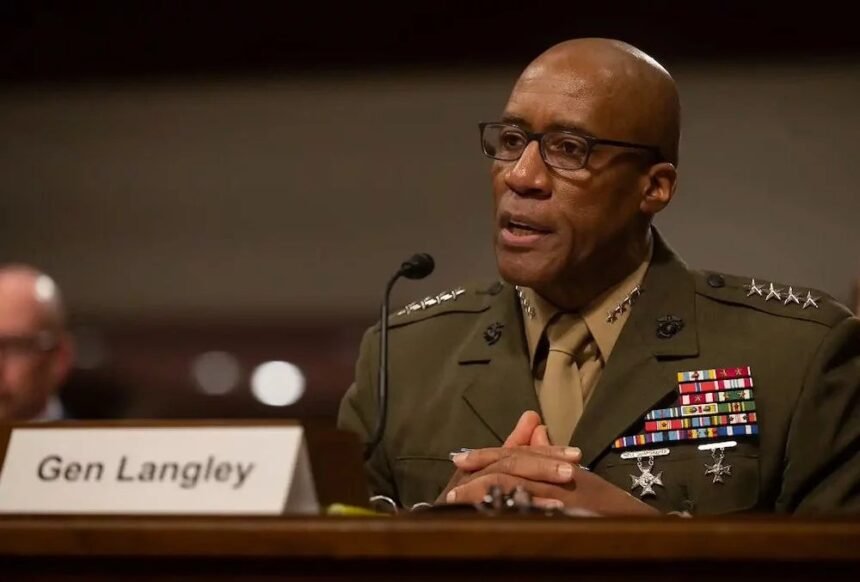The United States is reevaluating its Africa Command (AFRICOM) amid growing geopolitical competition and budget pressures, putting the future of America’s military presence on the continent in question. The potential closure would mark a significant shift in African security dynamics after 16 years of counterterrorism cooperation.
General Michael Langley, AFRICOM’s commander, delivered a stark message to African partners during recent consultations: the command’s continuation depends on African governments demonstrating its strategic value through formal diplomatic channels. This comes as defence officials in Washington conduct a sweeping review of global military operations ordered by the Trump administration.
Since its establishment in 2008, AFRICOM has served as the primary framework for U.S.-Africa security cooperation, coordinating counterterrorism operations against extremist groups like al-Shabab and ISIS affiliates while providing military training and intelligence sharing across the continent. The command has been particularly active in the Sahel and Horn of Africa regions, where Islamist militant groups continue to expand their influence.
The review process coincides with deteriorating U.S. relations with several African states following recent coups. Niger’s military government expelled approximately 1,000 American personnel earlier this year and shuttered a critical drone base near Agadez. Similar political shifts in Mali and Burkina Faso have led those nations to deepen security ties with Russia while distancing themselves from Western partners.
African defence officials gathering in Nairobi this week face pressing questions about how to respond to the potential AFRICOM withdrawal. Some security analysts suggest regional powers like Nigeria, Kenya and South Africa could lead efforts to preserve the partnership, while others argue the continent should pursue more diversified security arrangements.
The Pentagon is expected to complete its assessment by late 2024, with implementation possible as early as next year. The decision will weigh African input against U.S. strategic priorities and fiscal constraints, leaving African governments limited time to make their case for maintaining the current security architecture.
As Russia expands its military footprint through Wagner Group deployments and China continues its economic and security outreach across Africa, the potential AFRICOM closure could accelerate the reconfiguration of continental security partnerships. The coming months will test whether African leaders can articulate a compelling vision for continued security cooperation with Washington or if the U.S. military presence in Africa will enter a new, diminished phase.
For African security forces engaged in ongoing counterterrorism operations, the uncertainty surrounding AFRICOM’s future complicates long-term planning and threatens to disrupt critical support systems. The Nairobi summit may represent the last opportunity for a coordinated African response before Washington makes its final determination.
Defence analysts warn that without clear African support, the U.S. military footprint in Africa could shrink dramatically by 2025, potentially creating security vacuums that competing powers would seek to fill.










